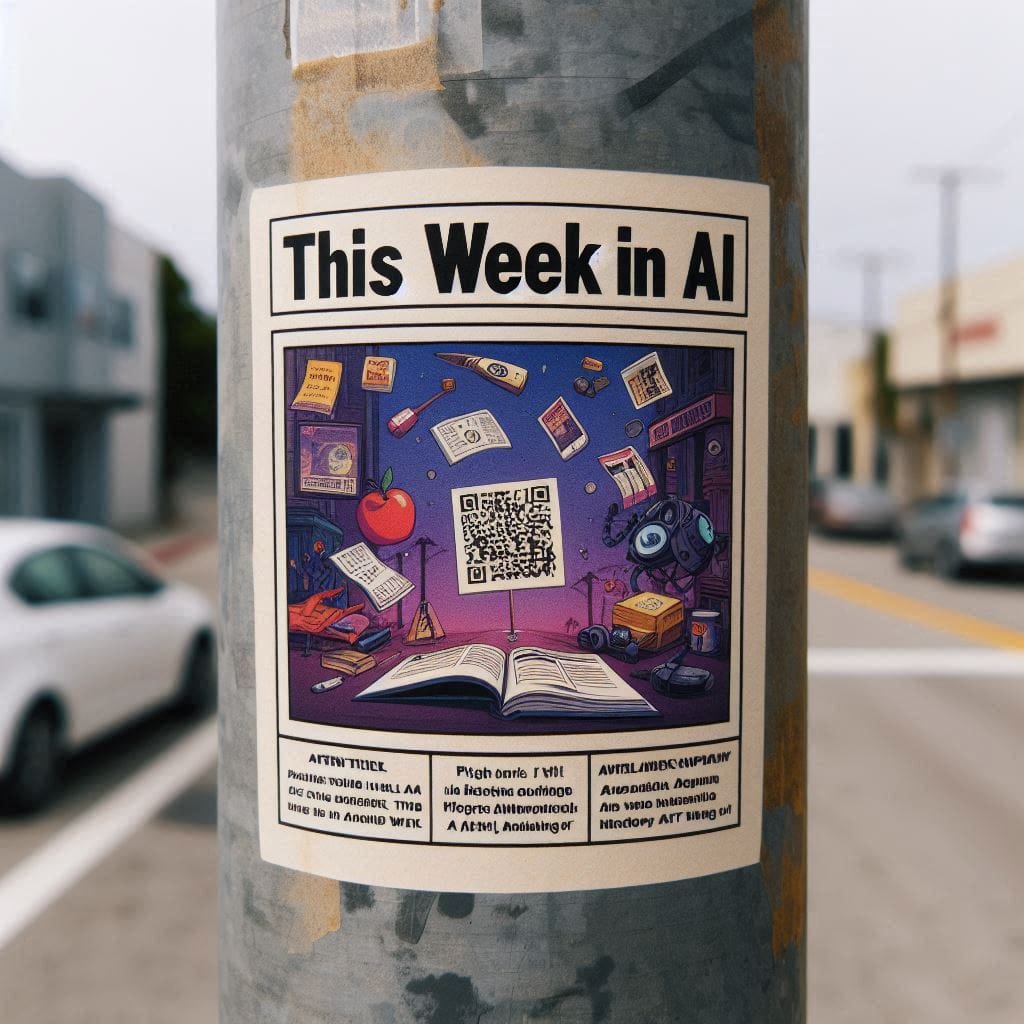Last week we saw OpenAI pause Sky, one of ChatGPT's Voice Mode voices after Scarlett Johansson spoke against the company for using a voice that was too similar to hers after she declined to lend her voice to the chatbot. The incident rekindled the discussion on AI firms' little consideration for upholding copyright and intellectual rights protections. What came after was a flurry of announcements, new media partnerships, discounted ChatGPT plans, and most unexpectedly, a Safety and Security Committee comprised entirely of insiders.
Unfortunately for OpenAI, none of these announcements managed to put the matter at rest, with this week beginning with the news that former OpenAI and a couple of current and former DeepMind employees had published an open letter calling for substantial changes in the way artificial intelligence companies operate, including supporting a culture of transparency and protecting whistle-blowers. Then, in a somewhat unexpected turn of events, we closed the week reporting that the FTC and the US Department of Justice agreed on how to proceed on the investigations into NVIDIA, OpenAI, and Microsoft.
But the most notable name in that list is not OpenAI, which the FTC has previously investigated and opened cases against. Unlike OpenAI, NVIDIA had never appeared in antitrust discussions, much less investigations. To make matters worse, news of the investigation comes at a time when NVIDIA has become the second-most valuable company in the world, a milestone it reached while riding another high: the company made all sorts of groundbreaking announcements at Computex 2024, including
- unveiling the Rubin architecture, the successor of the Blackwell architecture and the first step in the company's new roadmap featuring a one-year rhythm for semiconductor launches;
- launching Project G-Assist, a context-aware AI assistant technology that offers insightful and accurate replies to questions about game knowledge, suggests system setting optimizations, and explains specific settings' impact on performance;
- announcing the RTX AI Toolkit, a comprehensive set of tools and SDKs that simplifies the integrating, customizing, optimizing, and deploying AI model processes for Windows application developers; and
- announcing the general availability of NVIDIA NIM provides optimized AI models as containers, enabling millions of developers worldwide to easily deploy generative AI capabilities like copilots and chatbots within their applications in minutes.
AMD and Intel detailed their roadmaps and shared announcements of their own. Intel launched the efficient Xeon 6 family, announced pricing for the Gaudi AI accelerators, and teased the AI-optimized Lunar Lake processors for delivering industry-leading AI experiences on PCs. Similarly, AMD unveiled an expanded AI accelerator roadmap, previewed next-gen EPYC server processors, launched AI-enabled Ryzen processors for intelligent PCs in partnership with Microsoft and OEMs, and showcased its adaptive computing solutions driving edge AI innovation across multiple industries.
Other noteworthy headlines this week include:
Cloudera acquired Verta to accelerate Enterprise AI: Cloudera, an industry-leading data company for enterprise AI, has acquired Verta's Operational AI Platform, bolstering its AI and ML capabilities with Verta's team, technology, and end-to-end AI platform to solidify its position as a leader in Enterprise AI amidst growing competition and demand.
Storyblok raised $80M in the quest to become an end-to-end content platform: Storyblok, a leading headless content management system platform, has secured $80 million in Series C funding to build the world's first end-to-end content platform powered by AI and automation, enabling teams to create and manage exceptional content experiences across all channels more efficiently.
The Northern Data Group's AI accelerator will fast-track the world's most innovative ideas: Northern Data Group (NDG) has launched an AI Accelerator program providing access to powerful NVIDIA hardware, mentorship, and workshops for selected startups. With the accelerator, NDG aims to democratize access to sustainable AI technology and drive global innovation.
The Raspberry Pi AI Kit, developed with Hailo, is now available and costs $70: Raspberry Pi has launched a $70 AI Kit developed with Hailo, allowing the popular single-board computer to integrate high-performance, low-power AI inferencing through a Hailo-8L accelerator on an M.2 HAT+, enabling real-time AI vision applications with extensive software integration and support.
CoreWeave plans a $2.2B investment in its European expansion: CoreWeave is investing $2.2 billion to expand its European presence with three new data centers in Norway, Sweden, and Spain by 2025, powered by NVIDIA's latest technologies, bringing advanced AI compute capabilities to the region and positioning itself as a leading global AI hyperscaler.
Asana's new AI teammates will revolutionize how teams work with AI: Asana introduced AI Teammates that can advise teams on priorities, take action to execute workflows, and adapt based on a team's operations, to integrate AI securely and transparently into existing work processes across use cases like product launches and marketing campaigns.
Key announcements from the Snowflake Data Cloud Summit 2024: Snowflake announced a range of AI innovations at its Snowflake Summit 2024, including enhancements to its Cortex AI and Snowflake ML platforms, new developer tools, the Polaris Catalog, and a collaboration enabling customers to build AI applications powered by NVIDIA in the Snowflake platform.
Stability AI unveiled the sound generator Stable Audio Open: Stability AI has released Stable Audio Open, an open-source text-to-audio generation model optimized for generating audio samples and sound effects up to 47 seconds long, enabling sound designers, musicians, and creatives to experiment with AI-generated audio production and sound design.
Mistral AI now offers three routes for model fine-tuning: Mistral AI has introduced model customization capabilities on their la Plateforme offering an open-source SDK, serverless fine-tuning services, and custom training services to enable developers and enterprises to fine-tune and specialize AI models for their applications and domains.
A groundbreaking study shows AI could help predict potential antibiotics: The recent paper in Cell details the creation of AMPSphere, a catalog of 863,498 antimicrobial peptide sequences predicted using machine learning methods applied to genomic data. AMPSphere represents a significant advancement in leveraging AI to combat the growing antibiotic resistance crisis.
Google's most recent AI Academy focuses on US public infrastructure: Google has launched a new 12-week program called "AI Academy: American Infrastructure" that will provide training, resources, and support to startups using AI to solve challenges across various public infrastructure sectors like agriculture, energy, transportation, and urban development.
Wix is enhancing its app builder AI-assisted creation features: Wix has launched a generative AI feature in its mobile app builder, which empowers users to create fully designed, professional-grade native mobile apps for iOS and Android through a conversational AI chat experience.
Google updated NotebookLM and expanded access to over 200 countries: Google has upgraded its AI research and writing assistant NotebookLM with the latest Gemini 1.5 Pro language model, added features like Slides and web URL support, and expanded NotebookLM's availability to over 200 countries.





Comments